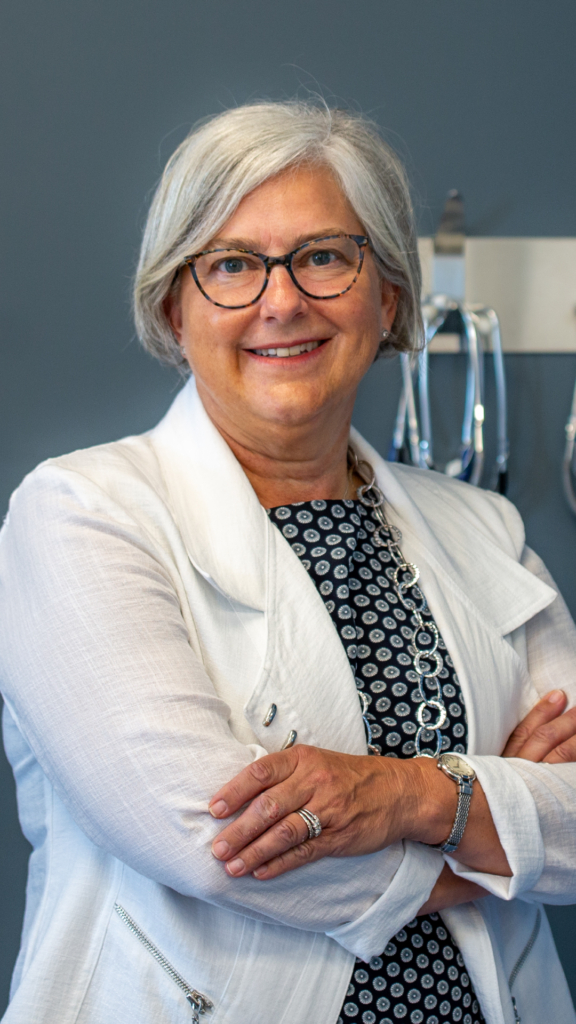
She’s a registered nurse with a PhD, and she helps patients and families make the best decisions about their health.
Dr. Dawn Stacey is a Senior Scientist and Co-Scientific Director of the Patient Decision Aids Research Group at The Ottawa Hospital and Vice-Dean of Research in the Faculty of Health Sciences at the University of Ottawa (uOttawa). She has dedicated her career to improving patient decision-making processes and helping implement better systems for healthcare providers to guide patients through their options.
It’s hard to quantify the impact Dr. Stacey has had on patients in Ottawa, and far beyond, but the fact that her work has been cited in more than 120 clinical guidelines might give you a good idea.
As the winner of the 2025 Grimes Career Achievement Award, it’s clear her peers recognize her impact.
Meet Dr. Dawn Stacey and see for yourself just how important her work has been to our community.
Q: What were your early years like?
A: I was born in Zweibrücken, Germany to Canadian parents. My father was in the military, so I grew up a military brat. We moved back to Canada when I was two. We lived in Manitoba, Alberta, and British Columbia before landing in Ottawa, which has been my parents’ home since I was in Grade 8.
We did a lot of travelling when I was young. When I was 12, we went back to Europe to see where I was born. My parents also had a camper, and we would drive back-and-forth across Canada every year to see our relatives.
I grew up having to change cities and friends often. I think it influenced why I love research, because research, too, involves constant change.
Q: What did you want to be when you grew up?
A: I wanted to be a flight attendant to travel the world. As I got a little older, I wanted to be a physiotherapist, like my mother.
Q: How did you decide to go into nursing?
A: The summer I turned 16, I worked at Easter Seals Camp Merrywood, where I was a counsellor for children with disabilities. I provided their personal care — which included catheterizations, feeding, dressing, and bathing — and I realized how much I loved providing care for others.
When I was applying to university, my mother thought I should go to McMaster University in Hamilton, Ontario, because they offered interprofessional and problem-based learning. The physiotherapists and nurses learn alongside each other during some coursework, and she thought that was the way we should be working together. The whole curriculum was based around solving a problem through small group discussions and self-directed learning. It was quite collaborative, and I had a great experience.
Q: What led to your focus on research?
A: As soon as I finished my undergraduate degree, I started working on a pediatric inpatient unit. I was so used to studying all the time that I decided to go back to school to specialize in cancer nursing.
Within two years, I took a position as a clinical trials nurse in Hamilton, working with women with breast and ovarian cancer. Together with the medical oncologist, we created the first decision board to help women understand their treatment options. But then I fell in love with someone in Ottawa, and I started as a nurse educator at what’s now called The Ottawa Hospital Cancer Centre. I was responsible for nursing and patient education for a decade.
As an educator, I started my master’s degree with Dr. Annette O’Connor — with a toddler and a baby at home! Dr. O’Connor encouraged me to do my PhD right away. I quit work and went full-time into a PhD program in Population Health.
Q: Do you have any unusual strengths?
A: I like change, different challenges, and being in leadership positions. In addition to leading research teams, I’m the Vice-Dean of Research for the Faculty of Health Sciences at uOttawa, supporting the research of about 120 professors in five schools. I’m also the president of our condo board. I’m always learning.
Q: What sparked your interest in decision and implementation sciences?
A: My interest started during my master’s, when I created and tested a decision aid for women at risk of breast cancer. It helped these women understand the evidence on different options. But when the study was done, the decision aid was no longer used in the clinic.
The focus during my PhD was the role of nurses at the BC Nurseline in supporting patients facing healthcare decisions. More specifically, I was interested in the barriers to nurses supporting patients, and I evaluated interventions to overcome these implementation barriers. With decision-making, nurses can help patients understand their healthcare options, decide what’s important to them in their situation, and go forward with the best option.
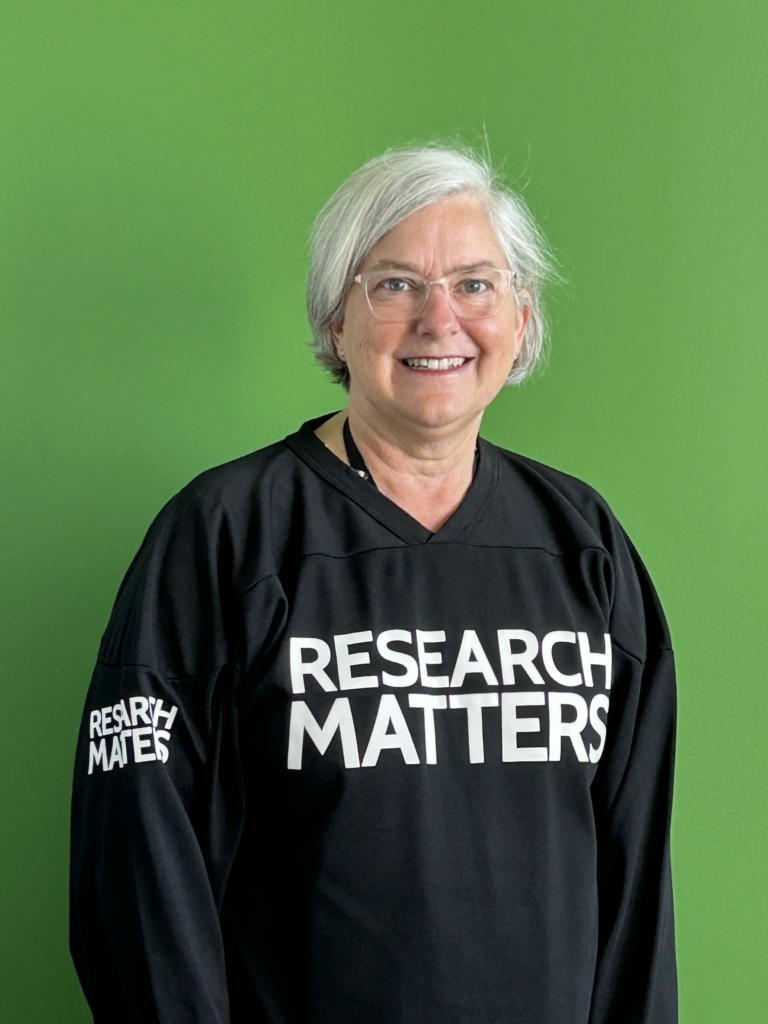
Q: What’s some of the research you’ve worked on since joining The Ottawa Hospital?
A: Over the years, I’ve done research in a number of different areas.
As soon as I finished my PhD, I started working collaboratively on a new approach to patient decision making called the “Interprofessional Shared Decision-Making Model” with France Legare, a family physician at Laval University in Quebec City. We tested implementing it in several environments.
I also started research at the hospital’s joint replacement clinic, helping patients understand the various options for osteoarthritis of the hip and knee. They could consider physiotherapy, surgery, joint injections, weight loss, or pain management. We helped decrease the number of patients having surgery slightly, and for those who did have surgery, it helped them have more realistic expectations of what to expect during and after surgery — and increased patient satisfaction with the process.
A major research project was looking at why nurses didn’t use the provincial guidelines for telephone-based cancer symptom management. I established and evaluated the pan-Canadian Oncology Symptom Triage and Remote Support (COSTaRS) Practice Guides to enhance the quality of cancer symptom support by nurses. This work with COSTaRS focused on implementation, on how we could change nurses’ practices to get them to move beyond “how bad is it on 0 to 10?” and to get them to do proper assessments and give better guidance around symptom self-management. COSTaRS is used by nurses in cancer programs across Canada, and patients who receive support from nurses using the guides have better symptom management.
Internationally, I’ve been co-leading the International Patient Decision Aid Standards, which ensures quality decision aids that do not negatively bias decisions. I influenced the accreditation of hospitals in Australia to require support for patients to participate in decision-making. And I am on a shared decision-making advisory panel in Denmark.
Q: How does your research help patients at The Ottawa Hospital?
A: When patients are supported to be involved in healthcare decisions, we know it helps them understand their options, helps them have realistic expectations, and helps them feel more comfortable about their chosen option. It gives them a voice in the decision. This is a part of the new strategic plan at The Ottawa Hospital — enhancing patient-partnered care and meaningful engagement. This includes supporting patient involvement in how decisions are made.
From a research perspective, we know that 50% of the time, patients are not informed of alternative options when they face health decisions. They’re just told what they need to do. We encourage patients to use prompts such as, “What are my other options?” and “What are the benefits and harms of those options, and how likely are they to occur?” And they can find decision aids about specific decisions on our website.
Q: Do you have any unusual fears?
A: My inner fear is whether I did my best. I was brought up by my parents telling me, “Whatever it is, you always have to do your best.” When I’m thinking about work, it’s usually having thoughts about, “how can I do this better?”
“Dr. Stacey is an outstanding, internationally recognized clinician-scientist and an innovator in decision and implementation sciences as applied to clinical practice, management, and health policy. She has provided remarkable contributions to the theory and application of shared decision-making.”
— Dr. Dean A. Fergusson
Q: What’s your favourite part of your job?
A: It’s working with other people. I honestly love coming into the office and being able to work as part of a team. I also love mentoring early-career researchers and students.
Q: How does it feel to receive the Grimes Career Achievement Award?
“Honestly, this research is so important for patients and patient care, and I’m just so happy it’s valued at this level at The Ottawa Hospital.”
— Dr. Dawn Stacey
A: I was completely shocked when I got the news. I was so humbled that my research is being recognized with this important award. Honestly, this research is so important for patients and patient care, and I’m just so happy it’s valued at this level at The Ottawa Hospital.
Q: Who is your mentor?
A: Dr. O’Connor has been an important mentor. She is the one who established this research program at The Ottawa Hospital, and she was recognized in the Medical Hall of Fame for her foundational research. I also get research guidance from Dr. France Legare and my husband Dr. Ian Graham.
“It is hard to describe the impact of Dr. Stacey’s contributions across healthcare globally. In the last decade, we have seen the international recognition of the need for patient engagement in decisions about their health and how health services are provided. Over the last 20 years, Dawn has been at the forefront of research addressing these issues. She has undertaken foundational research that has guided the field.”
— Dr. Jeremy Grimshaw
Q: Where would we find you when you’re not at work?
A: You are likely to find me on my bicycle riding the wonderful bike paths around Ottawa and Gatineau on the weekends, and I even bike to work in my dresses. In the winter, I love cross-country skiing and curling. My husband and I enjoy travelling for work and holidays, often with our three children.
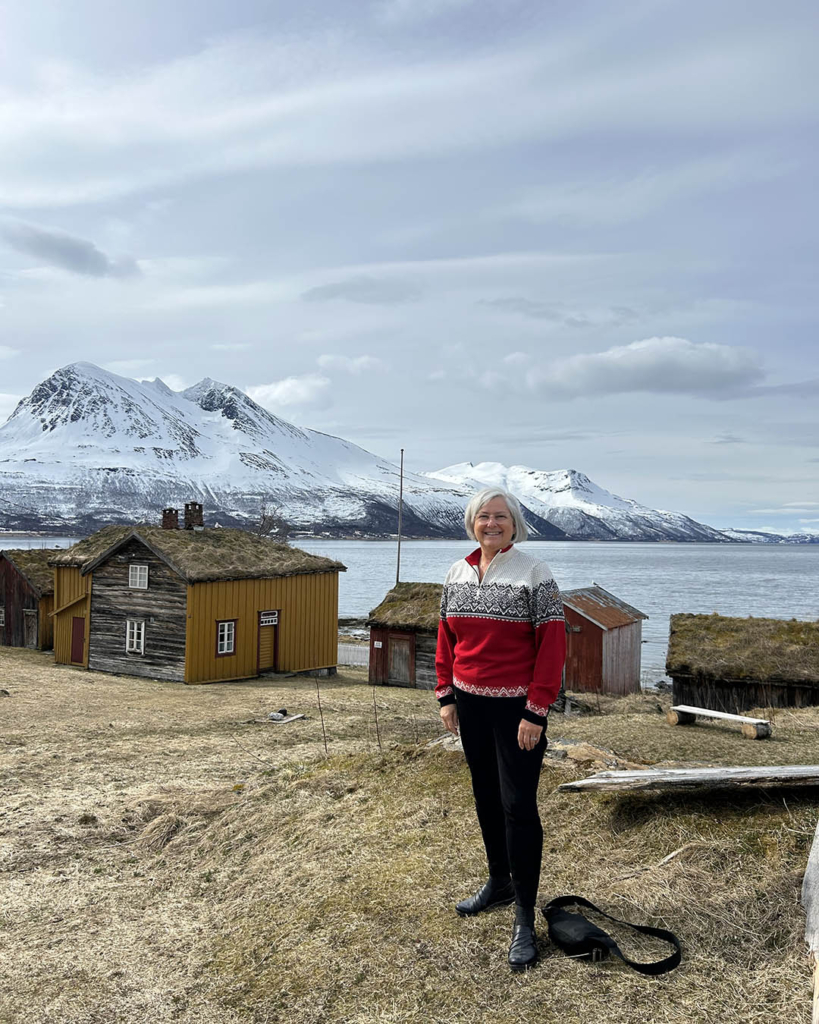
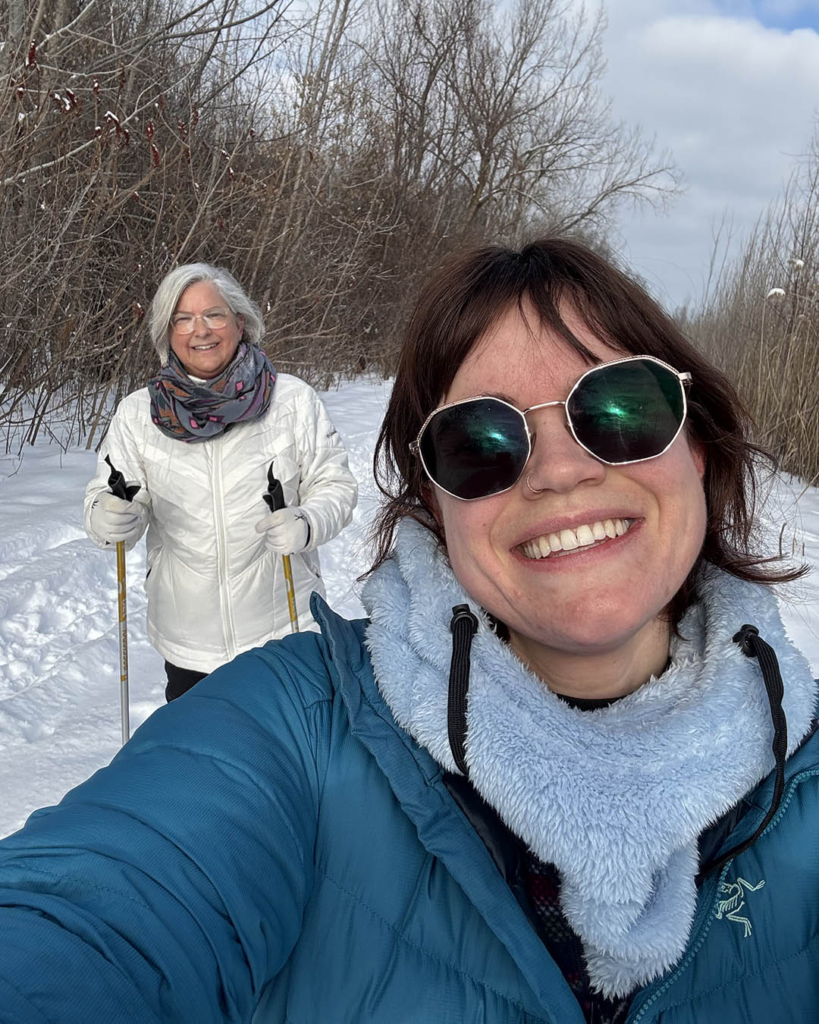
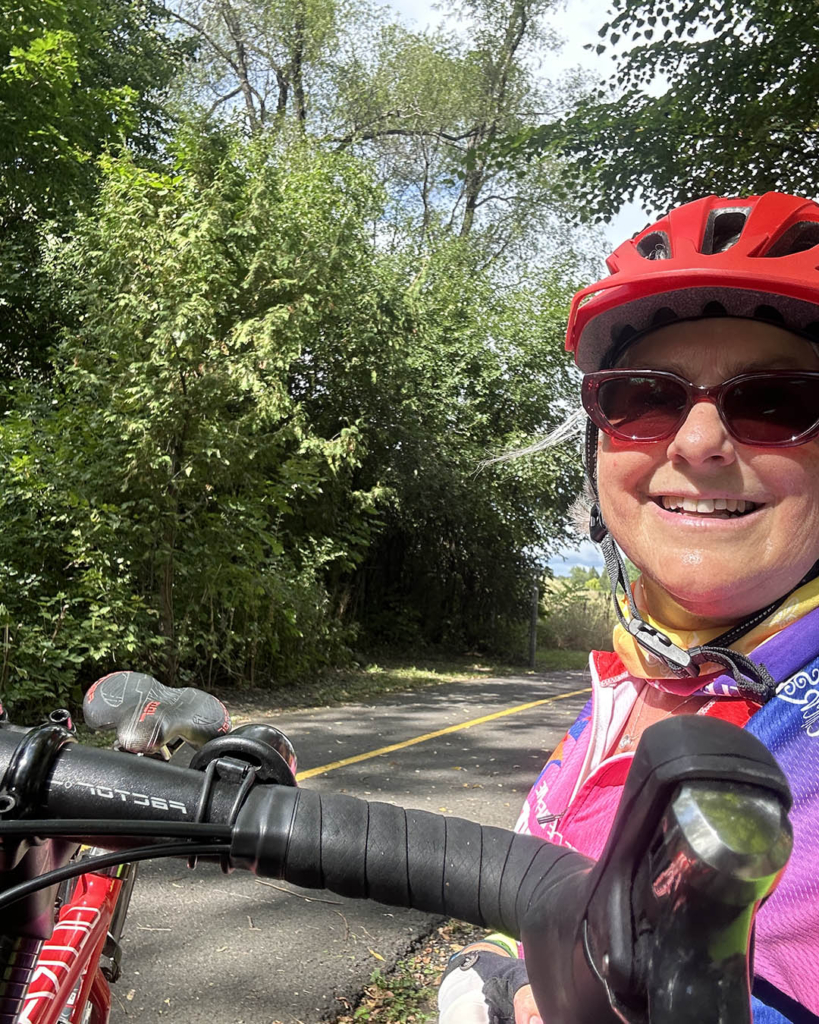
Download or stream episode 115 of Pulse Podcast to hear more about Dr. Stacey’s career and how important her work is not only for our patients but also for patients worldwide

